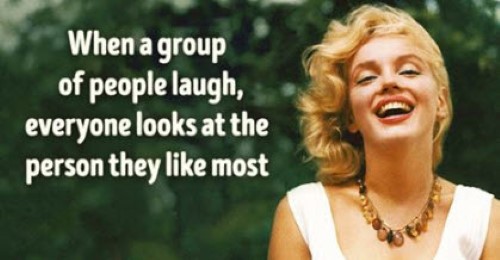Communication is a very important part of the human personality but not everybody has an easy time doing it. At times, we may find ourselves lost with an inability to know what to say. We may also have problems understanding what people really mean, because not everything is as it seems on the surface.
If you struggle to communicate or if you are concerned from time to time about the real meaning of what is being said, there are ways to look under the surface. These 13 psychological tricks will not only help you to communicate with anyone you want, it can even help you to steer the conversation in the right direction.
Pay attention to each of these suggestions and put them into practice when possible. You will be amazed with how quickly they make a difference.

1. When You Don’t like the Answer – If it seems as if somebody left things unsaid or if you think they may be lying, don’t ask them the same question over again. Simply wait for them to keep speaking, and they will. More than likely, they will corner themselves in the conversation when they continue their thoughts.
2. If Someone Yells at You – Although it can be difficult, try to be as impassive about the situation as possible. It is easy to react in the same way, but if you do, it may just provoke additional yelling. If you speak softly after someone yells at you, their aggressive behavior is likely to fade away.
3. When Being Criticized – If somebody is criticizing you or if you feel they are about to criticize you, try to move in closer to them. If you stand or sit beside that individual, they are likely to say less negative things about you that they would at a distance.
4. Chewing Could Help – Eating is often associated with peace and being secure. More often than not, we eat at home surrounded by things that are familiar to us. If you are overly concerned, try chewing some gum. It may trick your brain into thinking you’re eating and put you in a more relaxed frame of mind.
5. Make Someone Your Close Friend – This is an old method that was often used by students during exams. Imagine that the individual causing you stress is your closest friend. Doing this can help you to calm down and to get through the situation much easier.
6. Where Are You Looking? – When an entire group starts laughing at once, people will instinctively look at the person they like the most or they will look at a person they want to get closer to. Observe eyes after a joke, it can tell you a lot.
7. Express Joy – When you meet somebody, be a little happier or express more joy than usual toward that individual. Try to smile sincerely and greet them warmly. It will help the first meeting to be the start of a better relationship.
8. Use a Mirror – If you work with people in a situation where you must interact with them regularly, put a mirror behind your workplace. People who are standing in front of you will see the reflection and as a rule, people always try to look their best in the mirror. They are likely to smile more.
9. Catch Somebody’s Attention – If you want to catch the attention of somebody you like, try staring behind their shoulders. After you catch their attention, quickly look in their eyes and smile. It works great.
10. Control Your Stress – Our breathing is closely related to our stress levels. If you are feeling stressed out and worrying, try breathing more deeply. It will help to calm you down and also slow down your heartbeat.
11. Go for the Sympathy – When you want to get someone’s sympathy, try specifying the color of their eyes when you first meet them. Eye contact will always work wonders.
12. Reach Higher – If you are trying to get somebody to agree to certain terms, try setting those terms higher at first. They are likely to disagree but are more likely to agree later when you lower them to the real level. People are more likely to agree to your request if they have already denied you.
13. Be Confident – If you want people to be drawn to you naturally, try to be confident without being cocky.
What we do with our facial expressions is closely tied with our emotions. When we are sad, we tend to squint our eyes but when we are happy, we tend to raise our eyebrows. If you are having a difficult day, try smiling for no reason and keep it up. Before long, it will become a real smile.
Via: Bright Side
Be sure to share this information with your friends on Facebook
